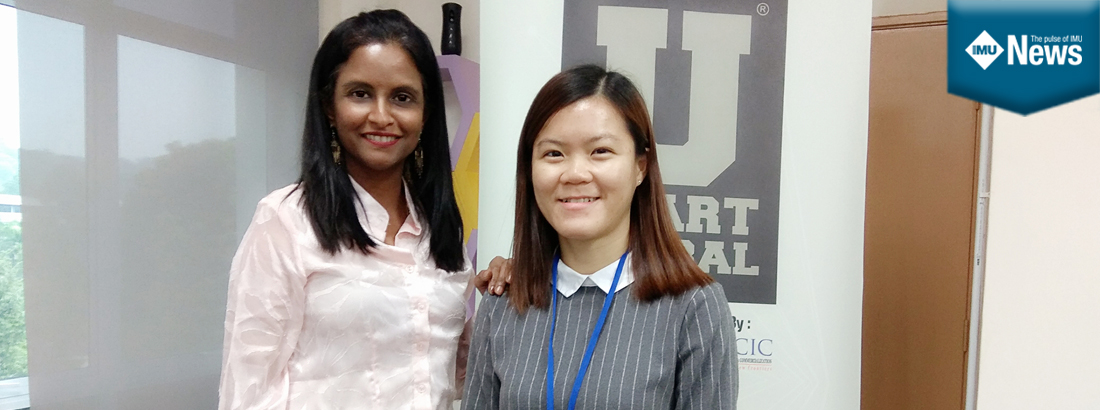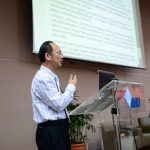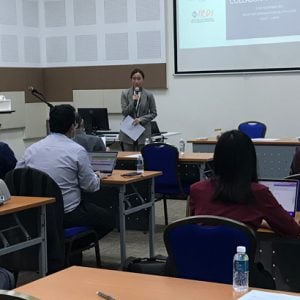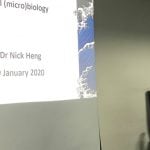“If you can’t explain it to a six-year-old, you don’t understand it yourself.” – Albert Einstein.
This quote was the take-home message for Lai Pei Kuan, a lecturer from the Institute for Research, Development and Innovation (IRDI), International Medical University (IMU), from attending Workshop on Communicating Technology to Technopreneurs. This 2-day workshop on 21-22 May, 2018. was jointly organised by UM Centre for Innovation and Commercialization (UMCIC), UM Innovations, Malaysian Biotechnology Information Centre (MABIC), and The Petri Dish – the first science newspaper in Malaysia.
The workshop is specifically designed to help technopreneurs, scientists, and postgraduate students effectively communicate technology to non-technical stakeholders to increase industry participation, funding opportunities, as well as policies and regulations to support research and development.
Speaker for this workshop was Dr Mahaletchumy Arujanan who is a renowned science or biotechnology communicator in the country and internationally. She has a degree in Biochemistry and Microbiology from Universiti Putra Malaysia, Masters in Biotechnology and PhD in Science Communication from Universiti Malaya. She is currently the Executive Director of Malaysian Biotechnology Information Centre (MABIC) and Editor-in-Chief of The Petri Dish. 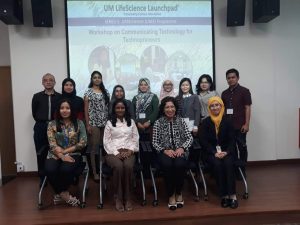 Scientists are very well-trained in research methodologies, analytical skills, and communicating their scientific findings to other scientists in scientific papers, in particular the high impact journals. However, most of the scientists are lacking in the skills of communicating science to the layman persons or general public. Part of the reason is that they are not receiving formal training in communicating science to the non-scientists. When it comes to science communication, they often find themselves stuck in articulating their scientific ideas or knowledge to the layman. Admittedly the public is also thirsty for scientific knowledge. Science communication is vital in engaging the public with science and technology and may explicitly exist to connect scientists with the rest of the society. With understanding of the basics of science, the public will be able to make informed decisions. Scientists are ultimately the key persons who are responsible to explain and disseminate their knowledge and findings to the public, media, and stakeholders in promoting science literacy. Learning was fun in this workshop as it incorporated creative approaches such as self-reflection, interaction, hands-on sessions and many more fun-filled activities to help the participants to effectively grasp the fundamentals of communicating science and technology to a wider public.
Scientists are very well-trained in research methodologies, analytical skills, and communicating their scientific findings to other scientists in scientific papers, in particular the high impact journals. However, most of the scientists are lacking in the skills of communicating science to the layman persons or general public. Part of the reason is that they are not receiving formal training in communicating science to the non-scientists. When it comes to science communication, they often find themselves stuck in articulating their scientific ideas or knowledge to the layman. Admittedly the public is also thirsty for scientific knowledge. Science communication is vital in engaging the public with science and technology and may explicitly exist to connect scientists with the rest of the society. With understanding of the basics of science, the public will be able to make informed decisions. Scientists are ultimately the key persons who are responsible to explain and disseminate their knowledge and findings to the public, media, and stakeholders in promoting science literacy. Learning was fun in this workshop as it incorporated creative approaches such as self-reflection, interaction, hands-on sessions and many more fun-filled activities to help the participants to effectively grasp the fundamentals of communicating science and technology to a wider public.
| “Although I have been involved in writing layman articles from scientific papers, this workshop is still a great eye-opener to me as the various creative ways to produce better science stories. I really enjoyed this workshop and learned a lot.” – Pei Kuan |
|---|




